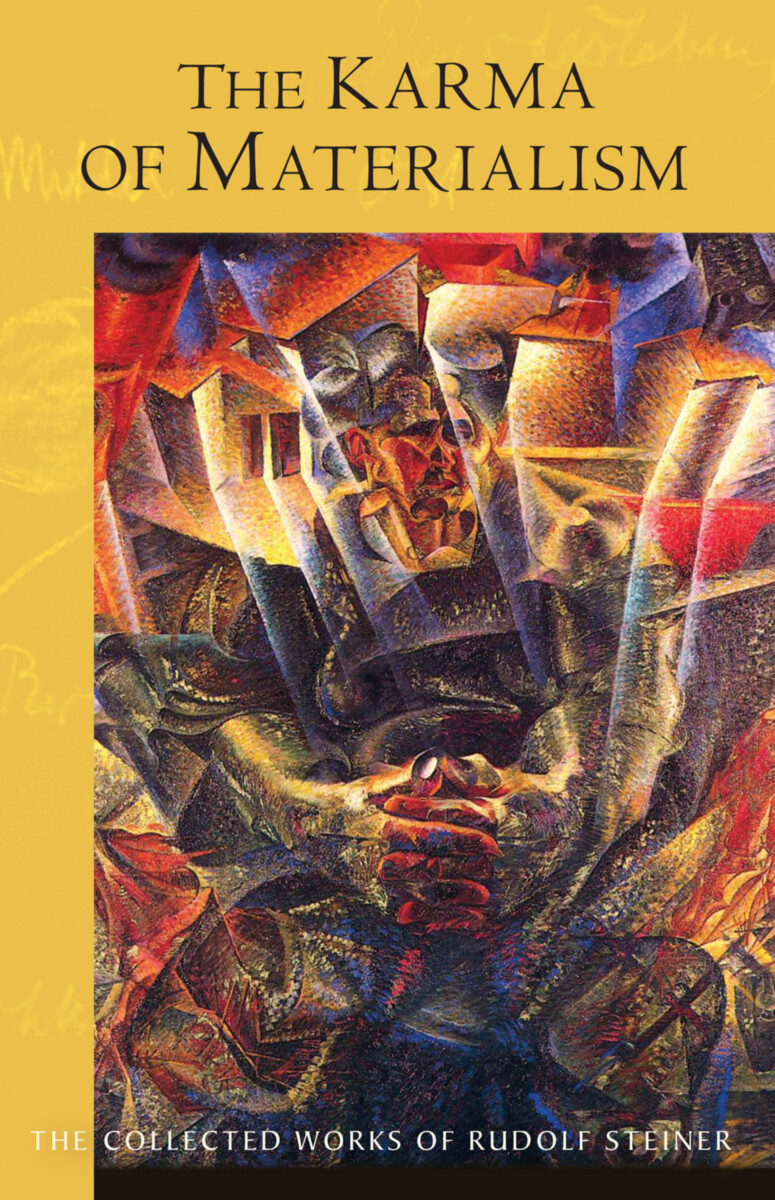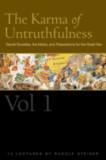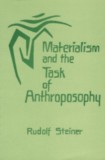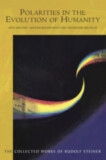The Karma of Materialism
Aspects of Human Evolution (CW 176)
- Publisher
SteinerBooks - Published
25th October 2022 - ISBN 9781621483120
- Language English
- Pages 384 pp.
- Size 6" x 9.25"
17 lectures, Berlin, May 29 – September 25, 1917 (CW 176)
“When faced with the way events are depicted in history, we should sense how necessary it is to rethink them. We should sense that today’s difficult time, which has brought such misery upon humanity, is the karmic effect of distorted, superficial thinking. We should sense that the painful experiences we are going through are in many respects the karma of materialism.”—Rudolf Steiner
We read in modern history books about external events isolated within themselves or subject to the random, blind working of mechanistically conceived causes and effects. But is it possible to view the events of our times—pandemics, war, political upheaval, etc.—as symptoms of an underlying disease, karmic consequences of humanity’s fall into materialism? In these lectures, given in the midst of World War I, Rudolf Steiner addresses this question with insight, nuance, and a deep love for humanity and the collective spiritual mission of our Earth.
Science—which should not be a set of beliefs or dogmas but a method and practice of inquiry—has become wedded, especially since the nineteenth century, to the worldview of materialism. This problematic union is most dangerous when erroneous concepts and lines of thought are extended beyond the domain of theory into the sphere of practical life. In these lectures, Steiner implores his audience “to become conscious of where humanity will be led if what today calls itself science is allowed to set the tone and to insinuate itself into realms where concepts become realities.”
Although given more than one hundred years ago, the message of these lectures is more urgent today than ever before.
This volume is a translation of Menschliche und menschheitliche Entwicklungswahrheiten. Das Karma des Materialismus, 2nd edition, Rudolf Steiner Verlag, Dornach, Switzerland, 1982 (GA 176). Cover image: Materia by Umberto Boccioni (1882–1916).
C O N T E NT S:
Introduction by Clifford Venho
I. ASPECTS OF HUMAN EVOLUTION
1. The Individual and the General Age of Humanity
2. The Need for New and Mobile Concepts: Cosmic and Natural Spirit
3. The Contemporary Spirit of Science
4. Contemporary Scientific Phenomena
5. Striving Human Beings Today
6. The Challenges of Self-knowledge
7. Repeated Lives on Earth
8. The Human Relationship to Truth
II. THE KARMA OF MATERIALISM
1. Forgotten Aspects of Cultural Life
2. False Analogies
3. Rhythm in Breathing and Cognition
4. Spiritual Courage versus Indolence
5. Christ and the Present
6. Reflections on the Times
7. Luther
8. Luther, the Janus Head
9. Spiritual Science and Insight
Editorial and Reference Notes
Name Index
Rudolf Steiner
Rudolf Steiner (b. Rudolf Joseph Lorenz Steiner, 1861–1925) was born in the small village of Kraljevec, Austro-Hungarian Empire (now in Croatia), where he grew up. As a young man, he lived in Weimar and Berlin, where he became a well-published scientific, literary, and philosophical scholar, known especially for his work with Goethe’s scientific writings. Steiner termed his spiritual philosophy anthroposophy, meaning “wisdom of the human being.” As an exceptionally developed seer, he based his work on direct knowledge and perception of spiritual dimensions. He initiated a modern, universal “spiritual science” that is accessible to anyone willing to exercise clear and unbiased thinking. From his spiritual investigations, Steiner provided suggestions for the renewal of numerous activities, including education (general and for special needs), agriculture, medicine, economics, architecture, science, philosophy, Christianity, and the arts. There are currently thousands of schools, clinics, farms, and initiatives in other fields that involve practical work based on the principles Steiner developed. His many published works feature his research into the spiritual nature of human beings, the evolution of the world and humanity, and methods for personal development. He wrote some thirty books and delivered more than six thousand lectures throughout much of Europe. In 1924, Steiner founded the General Anthroposophical Society, which today has branches around the world.








